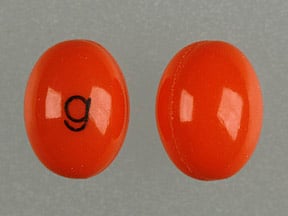
Doxercalciferol Coupons & Savings Card – Discount Prices from $50.23
Doxercalciferol, commonly known by the brand name Hectorol, is a synthetic form of vitamin D2 designed to manage elevated parathyroid hormone (PTH) levels in individuals with chronic kidney disease (CKD). This medication is particularly beneficial for patients with stage 3 or stage 4 CKD, whether they are on dialysis or not. It is available in cost-effective generic capsules and as an intravenous (IV) injection.
Doxercalciferol functions by mimicking vitamin D, which plays a crucial role in calcium and phosphorus balance in the body. By enhancing calcium absorption, it effectively reduces the production of PTH, thereby helping to lower its levels. This regulation is essential for maintaining strong bones and preventing complications associated with high PTH levels.
Potential side effects include infection, constipation, runny nose, and cough. It is important to consult healthcare professionals like your doctor, nurse, or pharmacist before starting any new medication to ensure its safety and effectiveness for your specific needs.
Our coupons are free to use. Before paying, show the pharmacist your Doxercalciferol savings card to get your free discount. Use our filters below to edit the prescription box to match your needs. The Doxercalciferol prices will update based on your prescription needs. Above our Doxercalciferol coupons, you can change your location to see pharmacy prices and costs in other areas. We're here to help you buy Doxercalciferol at the lowest price with our prescription discount card.
My prescription
Edit
0.5MCG, Doxercalciferol (30 Capsules)
Select pharmacy

CVS
$114.45
COUPON PRICE
Albertsons
$50.23
COUPON PRICE
Walgreens
$59.59
COUPON PRICE
Walmart
$186.35
COUPON PRICEDoxercalciferol savings card
Show this card to your pharmacist
Albertsons
$50.23
BIN
ID
PCN
GRP
019876
LH0E15CB83
CHIPPO
LHX
Powered by
Doxercalciferol, commonly known by the brand name Hectorol, is a synthetic form of vitamin D2 designed to manage elevated parathyroid hormone (PTH) levels in individuals with chronic kidney disease (CKD). This medication is particularly beneficial for patients with stage 3 or stage 4 CKD, whether they are on dialysis or not. It is available in cost-effective generic capsules and as an intravenous (IV) injection.
Doxercalciferol functions by mimicking vitamin D, which plays a crucial role in calcium and phosphorus balance in the body. By enhancing calcium absorption, it effectively reduces the production of PTH, thereby helping to lower its levels. This regulation is essential for maintaining strong bones and preventing complications associated with high PTH levels.
Potential side effects include infection, constipation, runny nose, and cough. It is important to consult healthcare professionals like your doctor, nurse, or pharmacist before starting any new medication to ensure its safety and effectiveness for your specific needs.
Our coupons are free to use. Before paying, show the pharmacist your Doxercalciferol savings card to get your free discount. Use our filters below to edit the prescription box to match your needs. The Doxercalciferol prices will update based on your prescription needs. Above our Doxercalciferol coupons, you can change your location to see pharmacy prices and costs in other areas. We're here to help you buy Doxercalciferol at the lowest price with our prescription discount card.
More prescriptions for kidney disease
coupons from$62.72Save 83%
coupons from$39.99Save 60%
coupons from$24.14Save 58%
coupons from$701.21Save 67%
coupons from$81.34Save 32%
coupons from$21.03Save 76%
coupons from$81.34Save 32%
coupons from$21.03Save 76%
More prescriptions for kidney disease
Calcium Acetate (phos Binder) Save 83%coupons from $62.72
Sensipar Save 60%coupons from $39.99
Sevelamer Carbonate Save 58%coupons from $24.14
Kerendia Save 67%coupons from $701.21
Paricalcitol Save 32%coupons from $81.34
Spironolactone-hydrochlorothiazide Save 76%coupons from $21.03
Zemplar Save 32%coupons from $81.34
Aldactazide Save 76%coupons from $21.03
Doxercalciferol dosage forms
Use our Doxercalciferol 0.5MCG coupon with prices from $50.23 for 30 Capsules. You can also use our Doxercalciferol 0.5MCG coupon with prices from $78.72 for 50 Capsules. We have a Doxercalciferol 1MCG coupon with prices from $92.96 for 30 Capsules. You can use our Doxercalciferol 1MCG coupon with prices from $149.93 for 50 Capsules.
Dosage Quantity Price from Per unit 0.5MCG 30 Capsules $50.23 $1.67 0.5MCG 50 Capsules $78.72 $1.57 1MCG 30 Capsules $92.96 $3.10 1MCG 50 Capsules $149.93 $3.00 2.5MCG 30 Capsules $106.49 $3.55 2.5MCG 50 Capsules $172.48 $3.45
| Dosage | Quantity | Price from | Per unit |
|---|---|---|---|
| 0.5MCG | 30 Capsules | $50.23 | $1.67 |
| 0.5MCG | 50 Capsules | $78.72 | $1.57 |
| 1MCG | 30 Capsules | $92.96 | $3.10 |
| 1MCG | 50 Capsules | $149.93 | $3.00 |
| 2.5MCG | 30 Capsules | $106.49 | $3.55 |
| 2.5MCG | 50 Capsules | $172.48 | $3.45 |
